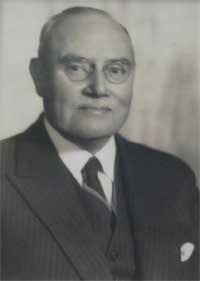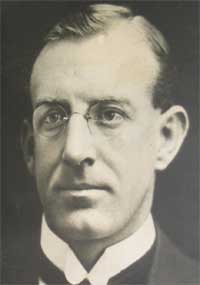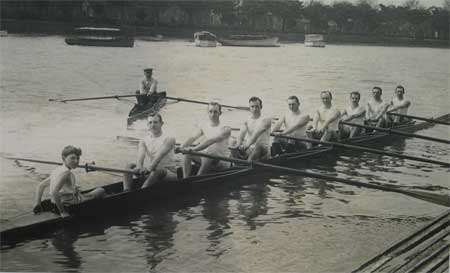History of Mercantile Rowing Club
Table of Contents
Chapters
- The River Yarra
- Early Rowing in Victoria
- The Beginnings (1880-1890)
- Mercantile in the Nineties (1890-1900)
- Sloan, Ivens and Fluctuating Fortunes (1900-1910)
- Dark Days and New Dawn (1910-1920)
- Years of Mixed Success (1920-1930)
- Through the Thirties (1930-1939)
- The Struggle for Survival (1939-1946)
- Building for Success (1946-1950)
- Mercantile to the Melbourne Olympics (1950-1956)
- Rowing to Rome (1956-1960)
- A Pink Cloud on the Horizon (1960-1965)
- The Storm and its Passing (1965-1966)
- A Clear Light Blue Sky (1966-1968)
- High Noon (1968-1970)
- A New Challenge (1970-1973)
- Fire and the Second Building Project (1973)
- Winds of Change (1973-1976)
- The Close of the Century (1976-1980)
- The Base for Success (1980-1984)
- Success (1984-1988)
- Oarsome Foursome (1988-1992)
- A Boathouse for the Best (1992-1996)
- The Rise of the Professional Coach (1996-2000)
- Golden Girls (2000-2005)
Appendices
6. Dark Days and New Dawn (1910-1920)
Immediately after the signing of the Armistice the Victorian Rowing Association instituted a series of classifying races and revived the Junior Premiership. At the first of these, held on November 23, 1918, the club entered two crews, both of which were unsuccessful. The second regatta was held a month later, with Mercantile's only entry being a Maiden Eight. This crew, which narrowly won both its heat and final, contained two oarsmen who later made a great contribution to Mercantile and Victorian rowing.
In the five seat of this first successful post-war Mercantile crew was Mick Williams, who had recently transferred from the Melbourne University Boat Club and who was to become a most generous supporter of the club and rowing in general. Following the death of Arch Dobbie in 1955, he was elected president of the Victorian Rowing Association, a position which he still held on his death some 20 years later.
The stroke of the crew was Cecil McKay, son of H. V. McKay of Sunshine Harvester fame. McKay left Scotch College at the end of 1917, before completing his education, and saw service abroad with the Australian Flying Corps. He was to return to Scotch in 1919 to stroke that school's Head of the River crew and by the end of the following season he had become a Senior Oarsmen and was also in the Victorian Interstate Eight. He culminated a brilliant career by stroking the Victorian crew which won the King's Cup at Mannum in 1930.
Other regattas at which the club was successful during the remainder of 1918-19 were Nagambie and Colac, when a Maiden Four was victorious at the former, with a Maiden Pair winning at Colac.
Mercantile was also well, but unsuccessfully, represented at the two Special Regattas held in February and April of 1919. The Junior Premiership was won by the Civil Service Club, with Mercantile in second place.
The 1919 Head of the River was sensationally won by Scotch College, who had dead-heated with Xavier on the only occasion in the history of the race, and were successful in the re-row. In addition to Cecil McKay as stroke and Alex Sloan as coach, the crew also included Jim Buchanan and several others, who were to play a prominent part in Mercantile rowing in the years that followed.
At this stage it is appropriate to review the close association which had developed between Scotch College and Mercantile and which continues to the present day. This association started as far back as the latter years of the previous century when Scotch, which had been boating from Greenlands, transferred to Mercantile. This arrangement was almost immediately successful when Scotch, with Albert Lindblade in its crew, won the Head of the River in 1889. Albert Lindblade won his Maiden Eight with Mercantile during the following season. Scotch crews continued to boat from Mercantile under an arrangement which was to continue for over 50 years until 1960, when Scotch decided that all of their crews should be based at the School's new sheds at Glenferrie. Over the years, a number of Mercantile members have coached Scotch crews and, in addition to Alex Sloan, these have included Albert Lindblade, Arch Dobbie, and, in more recent years Charlie Saleh, Bob Aitken and David Boykett. Scotch has long been a fertile source of recruits for the club and, despite the fact that the school no longer uses Mercantile premises, a strong bond remains between the two bodies, particularly in relation to the Scotch-Mercantile regatta which is outlined in later chapters.
At the conclusion of the 1918-1919 season Arch Dobbie retired as the club's captain with Walter Joseph terminating his period as secretary. The former had been captain for 11 years and as an oarsman his wins had included the Interstate Eight of 1904, Senior Eights at Henley in 1907 and 1908 and at the Barwon Regattas during the same years. In addition, he had won the State Champion Eight in 1908. Walter Joseph had been a rowing administrator of great ability and, apart from his services to Mercantile, had been an elected member of the Victorian Rowing Association for 10 years. At the time of his retirement, he had missed only two out of 106 meetings of the Association. It was largely due to these two men that the club successfully survived the difficult years of the Great War, and despite their resignations from the respective positions, their services to Mercantile and rowing were by no means terminated. Both were elected to the committee during the years that followed, with each becoming a vice-president of the club in 1923, Arch Dobbie succeeded Sir Stephen Morell as the president of Mercantile and was ultimately elected president of the Victorian Rowing Association. In 1940 Walter Joseph again became secretary of the club and still occupied that position until shortly before his death in December 1941. Both were life members of the club.
By the conclusion of the 1918-19 season many of the club's older members had returned from the services and had re-entered the sport. In addition a large influx of new members had taken place with total membership again approaching the 100 mark.
Club finances also were in a satisfactory position with an operating surplus of £53 for the year. With the revaluation of the boathouse, boats and oars to the insurance value totally £1,545, and other assets including a War Loan Bond of £100 and a bank balance of £56, the club capital had risen to £1,723. As no replacement of boats and oars had taken place during the war years, the club was now faced with substantial expenditure in this regard and a programme for gradual improvement of the fleet was implemented.
Ted Kenny succeeded Arch Dobbie as captain of the club at the 1919 annual general meeting, with Jud Harding becoming vice-captain and W. G. Bannerman being appointed secretary. Alec Clarke was again treasurer.

Sir Stephen Morell President 1905-33

Kenny Captain 1919-22
Henley, being held for the first time since 1914, was the opening regatta of the season, with Mercantile entering five crews. The Junior Four, stroked by Jack Mounsey was successful in winning the Elswick Challenge Cup, but it was the No. 2 Junior Eight which provided the most interest and controversy so far as the club was concerned. This crew comprised the entire winning Scotch College crew from the previous Head of the River, with all of its members still being at school. While the crew was anxious to compete in Mercantile colours, club officials were reluctant to grant approval for the entry in view of the fact that the only member crew to have won a Maiden race was Cecil McKay and, success in the Junior Eights would consequently preclude all other members from future rowing in Maiden ranks. After a special meeting of the committee, and discussion with the Headmaster and other representatives of Scotch College, it was agreed that the crew should be allowed to represent the club. In their heat against the club's No. 1 Junior Eight and Civil Service, the No. 2 crew were forced to withdraw due to obstruction by a crew proceeding upstream. The Regatta Committee, however, ordered the heat to be re-rowed, when the No. 2 crew won from Civil Service. Unfortunately it is not possible to record the proverbial "happy ending" for this episode in the club's history, as the crew was defeated by Banks in the final.
The first post-war championship was for Senior Fours, held in November 1919, and won by Nagambie. The club was not represented preferring to reserve their efforts for the Morell Cup for Senior Eights to be held at the Melbourne Regatta. In view of the club's association with Sir Stephen Morell this race had special significance for the club and was Mercantile's first Senior Eight entry since the 1913-14 season, with its last Senior Eight win having been at Ballarat more than 10 years previously. While all members of the crew had raced with the club in pre-war years, only Jud Harding (6) had tasted success in Senior ranks and six of the crew, which was stroked by Jack Mounsey, were having their first Senior race. This crew was successful in winning by 1 1/2 lengths and Mercantile was again a force to be reckoned with in Senior rowing.

1919 Senior Eight winners of the Morell Cup at the Melbourne Regatta.
Cox: E Counihan, Str: J L Mounsey, 7: R V Gregg, 6: J Harding, 5: H V Lloyd, 4: J H Picken, 3: W C Harvey, 2: R T Rush, Bow: W R Davy
The club's other five entries at Upper Yarra were unsuccessful, but further success came with a win in the Maiden Fours at Nagambie and in the Maiden Pairs and Senior Fours at Colac.
In the Champion Pairs, held in January, 1920, Mercantile representatives were defeated and the club's entry of seven crews all met a similar fate at the Upper Yarra Regatta. However, two days later the club was successful in both the Maiden Eights and Senior Fours at Albert Park.
Mercantile was again well represented for the Ballarat and Barwon double, but its only success was in Junior Pairs at Ballarat. With one change from its winning Senior Eight at the Melbourne Regatta, the club's Senior Eight could finish only third at Ballarat and were defeated in their heat by Barwon. Obviously, it was time for new blood, and for the Champion Eights, held two weeks after Barwon, three members of the previous years Scotch College crew came into the crew, with Cecil McKay in the stroke seat. In a field of seven, Mercantile finished a creditable fourth.
The club culminated a successful regatta season with wins in Maiden Fours at Sale and a Senior Four double at Bairnsdale and Sale. During the year the Mercantile had won 11 races and while it did not win either the Senior or Junior Premierships, which went to Nagambie and Banks respectively, the club had the satisfaction of achieving more wins than any other club.
The Interstate Eight-oared race, which was shortly to become the King's Cup, was resumed in 1920 after a lapse of five years, with Cecil McKay rowing in the Victorian crew and with Ted Kenny as manager. This crew could finish only fifth place to South Australia, with Jim Barton of Richmond being defeated as Victoria's representative in the Interstate Sculls.
As the 1919-20 season and the fourth decade in the history of the club closed, Mercantile had good reason to be satisfied. It had successfully weathered the disaster of the 1914-18 war and the slump in the club's fortunes which had preceded this conflict. With a nucleus of experienced pre-war oarsmen combined with a number of promising recruits, Mercantile crews again merited respect in both senior and junior rowing and gave promise of even greater things to come.
With a stable and experienced executive and committee, under the leadership of Ted Kenny as captain, membership had risen to 103, and despite substantial expenditure on the repair and replacement of boats and oars, the club finished the year with only a minor deficit.
Social and other club activities were also returning to normal, with the annual dinner and annual ball being successfully revived and the limited number of club races attracting good entries. The Morell Combination Eight, again one of the highlights of the season, attracted an entry of no less than 20 crews.
It was with justifiable confidence that Mercantile entered the twenties.
